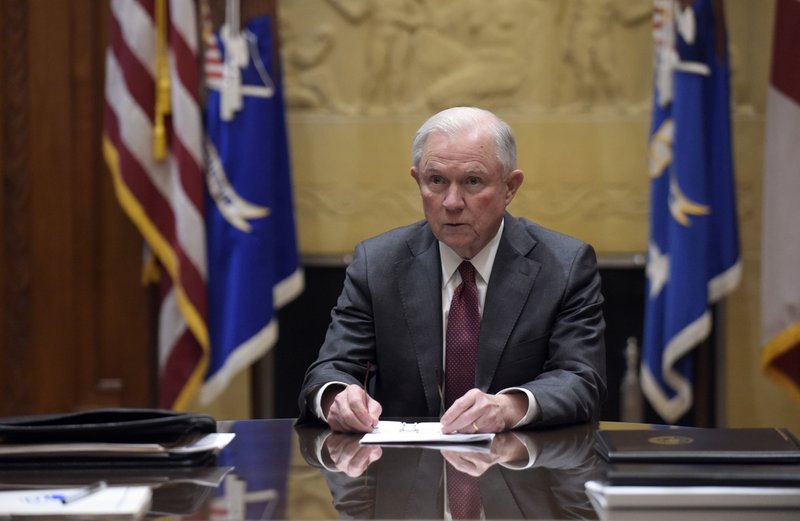WASHINGTON — Under growing pressure from Democrats and Republicans alike, Attorney General Jeff Sessions agreed Thursday to recuse himself from an investigation into Russian meddling in the 2016 presidential election. His action followed revelations he twice met with the Russian ambassador and didn't say so when pressed by Congress.
Sessions rejected any suggestion that he tried to mislead anyone about his contacts with the Russian, saying, "That is not my intent. That is not correct."
He did allow, though, that he should have been more careful in his testimony, saying, "I should have slowed down and said, 'But I did meet one Russian official a couple of times.'"
The attorney general said he made his decision to recuse himself after his staff recommended that he step aside from any investigation related to President Donald Trump's campaign, since he had been involved in that campaign. He said Acting Deputy Attorney General Dana Boente would handle such matters.
Sessions added that his announcement "should not be interpreted as confirmation of the existence of any investigation."
Air Force One landed in Washington minutes before Sessions' news conference began. President Donald Trump, who had spoken earlier aboard a new aircraft carrier in Newport News, Va., stayed on the plane during the televised event, emerging only after Sessions finished answering questions.
The White House has stood behind Sessions, though officials say they first learned about his contacts with the ambassador from a reporter Wednesday night. Trump said he had "total" confidence in Sessions and didn't think he needed to step aside from the investigation.
The Justice Department has maintained there was nothing improper about Sessions' contacts or his answers to Congress, while the continuing allegations of Russian interference in American politics spurred Democratic calls for Sessions not only to recuse himself but to resign.
Sessions has faced increasing demands that he resolve the seeming contradiction between his two conversations in the summer and fall with Moscow's U.S. envoy, Sergey Kislyak, and his sworn statements to Congress in January, when he said he had not had communications with Russians during the campaign.
While there is nothing necessarily nefarious or even unusual about a member of Congress meeting with a foreign ambassador, typically members of the Senate Foreign Relations Committee meet with foreign ambassadors, not Armed Services Committee lawmakers, whose responsibility is oversight of the military and the Pentagon. Congressional contact with Russian officials was limited after the invasion of Crimea and due to Moscow's close relationship with Syria.
Calling for Sessions to resign, House Minority Leader Nancy Pelosi accused him of "lying under oath." Senate Democratic leader Chuck Schumer said a special prosecutor should be appointed to examine whether the federal investigation into the Kremlin's meddling in the U.S. election — and into possible contacts between Trump associates and Russians — had been compromised by Sessions. Democrats also sought a criminal perjury investigation.
And more than a half dozen Republican lawmakers, including some who consider themselves personally close to Sessions, urged him to recuse himself from the Justice Department probe. They include Sen. Tom Cole of Oklahoma, who said that though he found it impossible to believe that Sessions could have colluded with Russia, "If there is an investigation, he probably shouldn't be the person leading it."
Read Friday's Arkansas Democrat-Gazette for full details.
